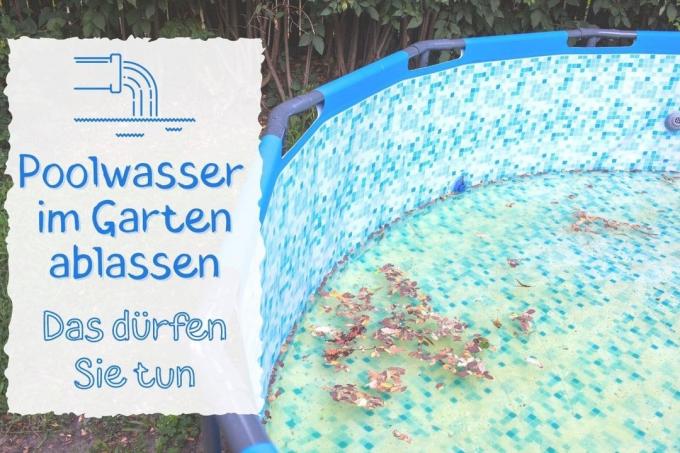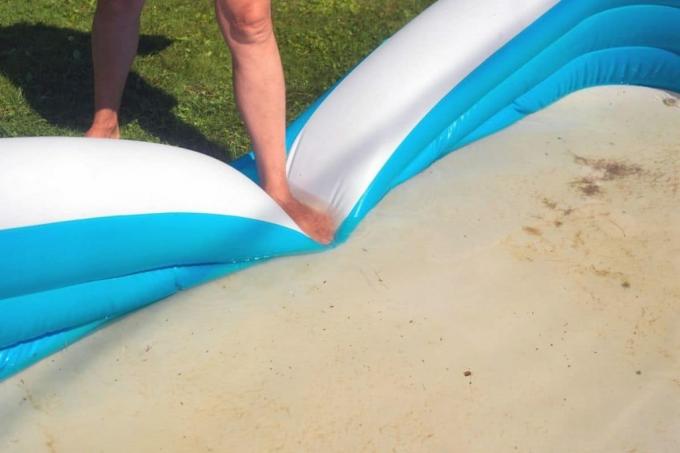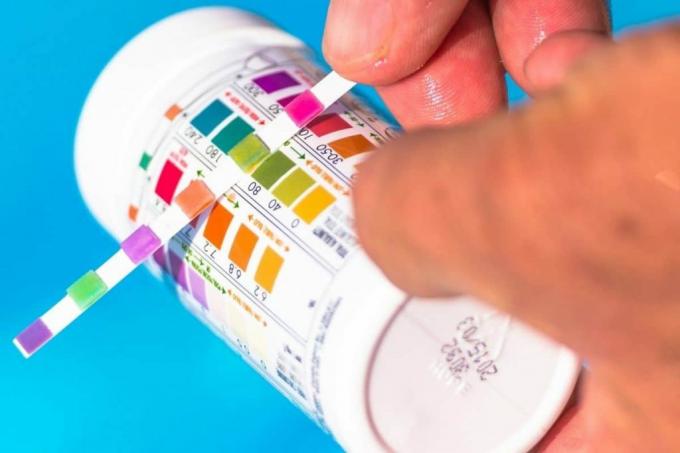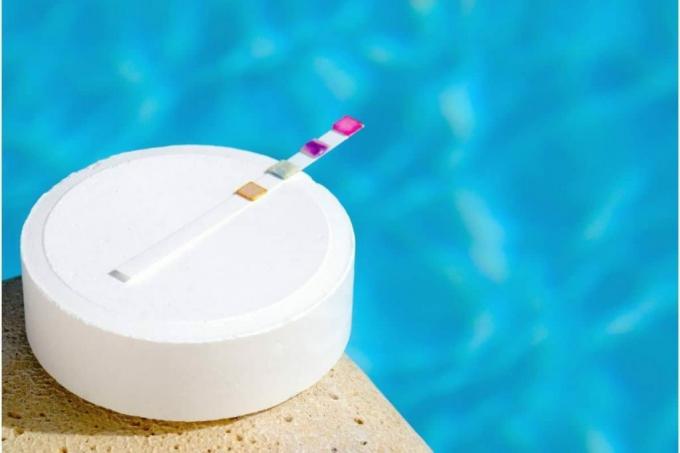
table of contents
- Drain pool water in the garden
- Situation in Germany
- Situation in Austria
- Situation in Switzerland
- frequently asked Questions
A pool or an inflatable pool is a welcome refreshment in summer. However, if it becomes too cold for bathing, the question arises of where to put the water. Read here what to watch out for when draining the pool water in the garden.
In a nutshell
- Pool water is dirty water
- Draining pool water is regulated differently in Germany, Austria and Switzerland
- inconsistent regulations within Germany
Drain pool water in the garden
The following article briefly introduces the regulations applicable in Germany, Austria and Switzerland for draining pool water in the garden. He does not claim to be legal advice.
Situation in Germany
In Germany, the discharge of pool water into the garden is not uniformly regulated. Some counties or Municipalities allow the water to seep away on their own property, while others forbid it.
Pool water is sewage
In Germany, pool water is after Water Resources Act
(WHG) dirty water, because the (fresh) water has been changed. It does not matter whether the change is caused by chemical treatment or purely by use ("bathing"). In addition, it does not matter whether it is a temporary "paddling pool" or a permanently installed swimming pool. Because it is essential for the consideration according to the WHG that the original quality of the fresh water is no longer given.
Therefore, the draining or It is forbidden to seep into the garden soil, as this causes pollution to enter the subsoil and subsequently into the groundwater. It doesn't matter whether your pool is in or outside a water protection area.
Regional exceptions
Exceptions can be made in children's paddling pools. To do this, they have to
- filled with untreated water
- have only been used for a short time
Note: But also for this exception you should inform yourself at the responsible lower water authority, because this exception is not valid everywhere.
Infiltration on the property
The infiltration of the pool water on your own property is up for examination in some regions if the possibility of a central connection to the public sewer system is not available. The hygienic quality of the water must be ensured. This includes the following guide values:
- Content of freely active chlorine: 0.3 to 1.5 milligrams per liter
- Maximum value of combined chlorine: 0.5 milligrams per liter
- PH value of pool water: 6.8 to 7.5

In addition, the pool water should not contain any biocides or other additives. In addition to the water quality, there are also requirements for infiltration. she
- must be broad
- over a busy ground zone
take place. In addition, it must be ensured that the infiltration takes place without damage to neighboring properties, in particular it must care must be taken that flooding or waterlogging of neighboring buildings on other properties is excluded. Furthermore, the pool water should seep away in your own property so that third parties are not impaired.
Note: Drinking water protection areas are excluded from this exception.
While in some counties the exception to the connection to the public sewer system stops, there is the possibility in others of a water law permit to infiltrate apply for. However, since this involves treatment of the pool water, some municipalities or Disregard the application, as the production of the required water quality is a significant hurdle.
Situation in Austria
Waste water that occurs when the pool is emptied is called pool drainage water in Austria. Since they are only slightly contaminated, so it is assumed, they should be disposed of via a wide-area trickle system on your own green area. In contrast to Germany, the discharge into the dirty or mixed water sewer system should only take place if it is not possible to seep into the garden. The following requirements must be met for trickling:
- Existence of a sufficiently large area for surface trickling
- with closed vegetation (lawn, meadow)
The trickling is recommended for pool water that
- with chlorine has been disinfected,
- contains no other additives and
- has an active chlorine content of less than 0.05 milligrams per liter

In addition, the rights of third parties must not be violated by draining the pool water in the garden. Wetting the neighboring property is also prohibited.
Note: In groundwater conservation areas, it should be clarified whether a permit under water law is required.
Pool water with other additives
Pool water, the hibernation agent or biocidal chemicals, in particular
- based on copper and silver salts or
- more than 300 grams of salt per cubic meter,
contains, must not be infiltrated. This water is to be discharged into the public wastewater network in coordination with the sewer authority.
Situation in Switzerland
In Switzerland, water from private swimming pools is considered polluted wastewater. It is therefore to be derived from the sewage treatment plant (Swiss Federal Water Protection Ordinance). To ensure this, permanently installed pools must be connected to the sewage pipe during construction. Before draining the pool water:
- No chemicals may be added at least one week before draining (ideally two weeks)
- the pH of the pool water must be between 6.5 and 9.0
Above ground swimming pool
The water from above-ground swimming pools can be directed into the shaft in which the waste water from the washing machine also flows. Exceptions are shafts that lead into a body of water. The flow rate of the water must not exceed two liters per second.
Soak into the garden
The circumstances under which the pool water can be drained into the garden differs in Switzerland. This is possible, for example, if the pool cannot be connected to the sewage system or the water has not been treated with chemicals. In these cases, however, you should contact the relevant directorate for more information.
frequently asked Questions
So that you do not come into conflict with the Federal Soil Protection Act, this irrigation water may contain a maximum of 0.05 milligrams of chlorine per liter.
You should ask the responsible lower water authority whether this is allowed or not.
Draining into rivers is only permitted in certain cases. Therefore, you should definitely get information from the responsible authority.



